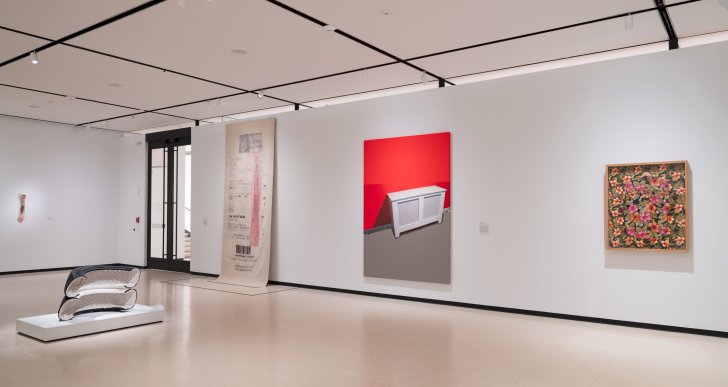Dawne Hoeg:
When I started Stitch Buffalo, and we were in those workshops, I was purchasing all of the supplies while raising a family, I had two part time jobs. Like it didn't make sense, but the workshops made sense, and so I put a call out for supplies, basic supplies, the embroidery floss, the needles, the scissors, any fabric hoops—I think those were the five—and beads. I think those were the six items I put out as a request, and the donations just started to come in, and then it was sewing machines. Then it was yarn and. . . and I recognized that everybody has a collection of these tools and supplies from one part of their life or another, and we started to collect more and more donations. And then I was also realizing that these donations were fueling a whole ‘nother economy and support for the, for what I was doing with the refugee women. And I thought, Okay, well, this seems like a viable source and situation for the organization to keep working towards. And so we now collect textile art supplies and tools through our donation program, which is the Second Stitch program, and we reuse all of those materials, whether it's in our seamstress and tailoring work in our community classes and most importantly, in our refugee women's workshop. A lot of our embroidery floss, scissors, needles, beads come in and are donated to us and we, we the refugee and immigrant women of Stitch Buffalo make them beautiful and give them another purpose.
As the organization moves forward, it's one of our pillars to continue our, our growth in becoming sustainable, in in what we do. We just purchased a new machine called a felt loom that actually creates fabric from other fabrics, unwanted fabrics. And so I believe it's an incredible resource for us to continue to save things from the landfill, repurpose them, and put them in the hands of the women that we work with, as well as local fashion designers.

